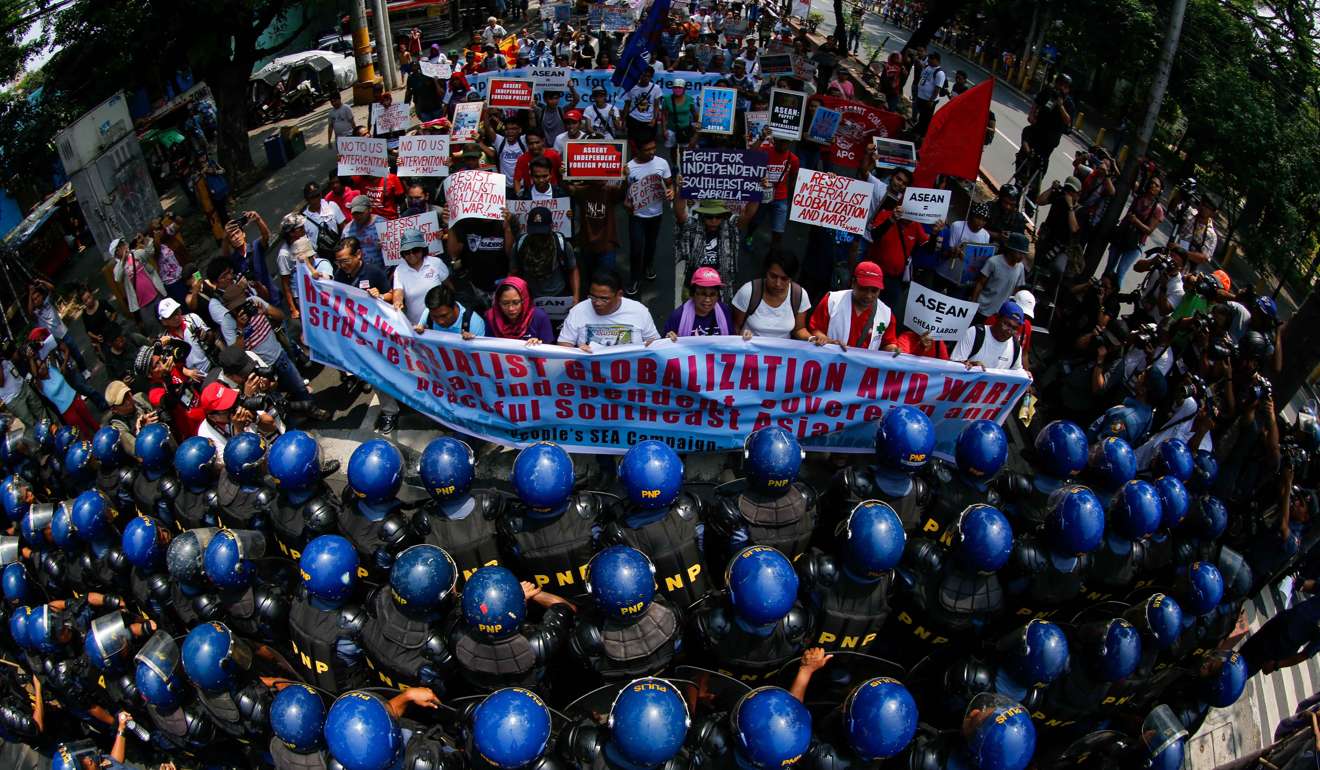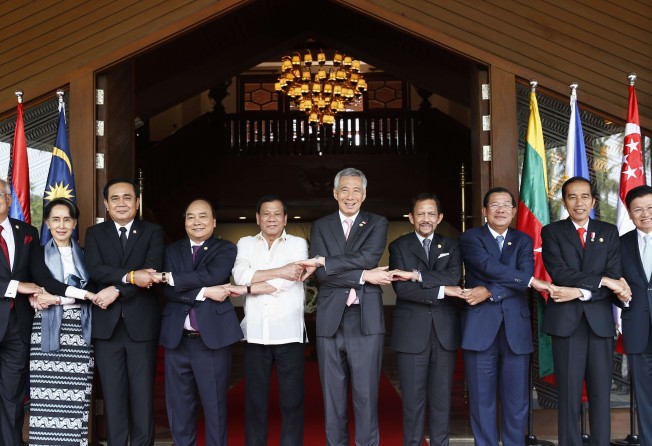
Manila avoids tough China talk at Asean
Host country the Philippines resists pressure by some bloc members to address Beijing’s military build-up in the contested South China Sea

The Asean regional bloc wrapped up its annual summit on Saturday with host country the Philippines extending an olive branch to China over the contested South China Sea.
Manila resisted pressure from other bloc members to take a tougher line with Beijing as it grows increasingly assertive in pressing its claims in the contested waters.
Asean was expected to release a joint statement on Saturday but it was delayed.
Philippine President Rodrigo Duterte, the current chairman of the Association of Southeast Asian Nations, said he did not want any “trouble” with China and discussing its fortification of reclaimed islands in the South China Sea was useless.

China is not member of the Asean, and did not attent the summit, but Chinese embassy representatives in Manila had sought to influence the content of the final statement by lobbying Philippine officials, two Asean diplomatic sources told Reuters.
Some bloc members had been pressing Manila to insert stronger wording about China’s military build-up, Reuters quoted unidentified Asean sources as saying.
Duterte said the issue was not raised during his discussions with other Asean leaders, although they were aiming for a code of conduct to be released “at the very least by the end of this year”.
But some Asean diplomats doubt China is sincere about agreeing to a set of rules.
In unusually direct comments for an Asean secretary general, Le Luong Minh on Thursday told Reuters the code needed to be legally binding to put a stop to “unilateral actions”, because a previous commitment to play fair had been ignored.
China has competing sovereignty claims in the South China Sea with the Philippines, Vietnam, Malaysia and Brunei. Taiwan also claims parts of the waterways.
In July last year, the Permanent Court of Arbitration ruled in Manila’s favour in a case it brought contesting Beijing’s claims.
Aileen Baviera, an Asia studies expert at the University of Philippines Diliman, noted the ruling applied to China, and the Philippines was a party to the case.
“It will likely be discussed between the two countries at an appropriate time. Whatever relevance other countries may draw from it, it is up to them to raise it with China,” he told the South China Morning Post.“On the other hand, the code of conduct is between Asean and China so that is on the formal agenda. So it’s not very necessary to raise the [ruling] in discussions.”